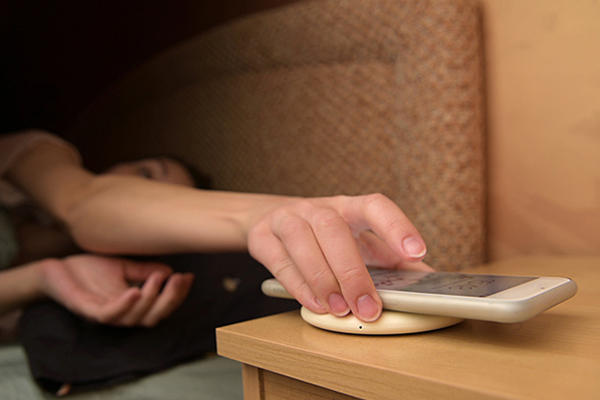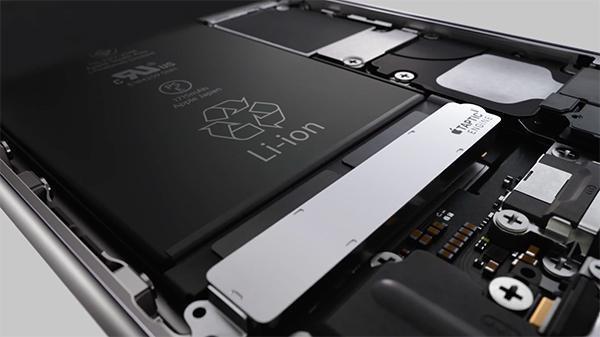Specialize in Solution for power lines like wireless chargers and adapters etc. ------- LANTAISI

Many people plug their mobile phone into a charger before going to sleep at night to charge. But once it is fully charged, is it really safe to keep the phone plugged into the charger? Will there be radiation? Will it damage the battery-or shorten its life? On this subject, you will find that the Internet is full of opinions disguised as facts. What is the truth? We have checked some expert interviews and found some answers for you, which can be used as a basis for reference.
Before we figure out this problem, let's take a look at how the lithium-ion battery of a smartphone works. The battery cell has two electrodes, one electrode is graphite and the other is lithium cobalt oxide, and there is a liquid electrolyte between them, which allows lithium ions to move between the electrodes. When you charge, they change from the positive electrode (lithium cobalt oxide) to the negative electrode (graphite), and when you discharge, they move in the opposite direction.
Battery life is usually rated by cycle, for example, the iPhone battery should retain 80% of its original capacity after 500 full cycles. The charging cycle is simply defined as using 100% of the battery capacity, but not necessarily from 100 to zero; it may be that you use 60% a day, then charge overnight, and then use 40% the next day to complete a cycle . With the passage of time, the number of charging cycles, the battery material will degrade, and eventually the battery cannot be kept charged. We can minimize this loss by using the battery correctly.

So, what factors will affect the service life of the battery? The following four points will affect battery life:
1. Temperature
The battery is most sensitive to temperature. Generally, the working temperature of the battery exceeds 42 degrees, and it is necessary to pay great attention (note that it is the temperature of the battery, not the problem of the processor or other components). Excessive temperature often becomes the biggest killer of the battery. Apple recommends removing the iPhone case during the charging process to reduce the risk of overheating. Samsung said that it is best not to let your battery power drop below 20%, warning that "full discharge may reduce the power of the device." We can generally check the battery problem through the software manager that comes with the mobile phone or the battery-related options in the safety center.
Using a mobile phone while charging is also a bad habit, because it increases the amount of heat generated. If you are charging overnight, consider turning off your phone before plugging it in to reduce battery pressure. Keep your smartphone as cool as possible, and never put it on the dashboard, radiator or electric blanket in a hot car to avoid damage to the battery or even fire.

2. Undervoltage and overcharge (overcurrent)
Smart phones from regular manufacturers can recognize when they are fully charged and stop the input current, just as they automatically shut down when the lower limit is reached. What Daniel Abraham, a senior scientist at Argonne Laboratory, said about the impact of wireless charging on battery health is that "you cannot overcharge or overdischarge the battery pack." Because the manufacturer sets the cut-off point, the smartphone battery is fully charged or discharged. The idea becomes complicated. They decide what is fully charged or empty, and they will carefully control how far you can charge or drain the battery.
Although plugging the phone overnight is unlikely to cause any major damage to the battery, because it will stop charging to a certain extent; the battery will begin to discharge again, and when the battery power drops below a specific threshold set by the manufacturer, the battery will restart Charge. You also need to extend the time for the battery to be fully charged, which may accelerate its degradation. How big the impact is is very difficult to quantify, and because manufacturers handle power management in different ways and use different hardware, it will vary from phone to phone.
"The quality of the materials used has a great impact on battery life," Abraham said. "You may eventually get the price you paid." Although there will be no big surprises if you charge for one night occasionally, it is difficult for us to judge the material quality of mobile phone manufacturers, so we still maintain a conservative attitude towards charging for one night.
Major manufacturers like Apple and Samsung provide various tips to extend the life of the battery, but neither solves the question of whether you should charge it overnight.

3. The resistance and impedance inside the battery
"The life cycle of a battery depends to a large extent on the resistance or impedance growth inside the battery," said Yang Shao-Horn, WM Keck Energy Professor at MIT. "Keeping the battery fully charged basically increases the rate of some parasitic reactions. This can cause potentially high impedance and greater impedance to grow over time."
The same is true for full discharge. In essence, it can accelerate internal reactions, thereby accelerating the rate of degradation. But full charge or discharge is the only factor far from being considered. There are many other factors that affect cycle life. As mentioned above, temperature and materials will also increase the rate of parasitic reactions.

4. The charging speed
Again, too much heat is a major factor in battery loss, because overheating will cause the liquid electrolyte to decompose and accelerate degradation. Another factor that may have a negative impact on battery life is charging speed. There are many different fast charging standards, but to facilitate fast charging may have the cost of accelerating battery damage.
Generally speaking, if we increase the charging speed and charge faster and faster, it will shorten the service life of the battery. Fast charging may be more serious for electric vehicles and hybrid vehicles, because electric vehicles and hybrid vehicles require more More power for the phone. Therefore, how to solve the battery loss caused by fast charging is also something that businesses should pay attention to, instead of blindly launching fast charging without being responsible.

The general consensus is that to keep your smartphone battery between 20% and 80%, the best way to charge your phone is to charge it whenever you have a chance, charging a little each time. Even if it's just a few minutes, the sporadic time of charging will damage the battery the least. Therefore, a full-day charging may extend the battery life better than a overnight charging. It may also be prudent to use fast charging with caution. Several good wireless chargers for home and work are also a good choice.
There is another factor that needs to be considered when charging a smartphone, and it relates to the quality of the accessories you use. It is best to use the charger and cable that are officially included with the smartphone. Sometimes official chargers and cables are expensive. You can also find reputable alternatives. It should be noted that you must find safety accessories that have been certified and certified by companies such as Apple and Samsung, and comply with regulatory requirements.
Questions about wireless charger? Drop us a line to find out more!
Post time: Nov-12-2021
